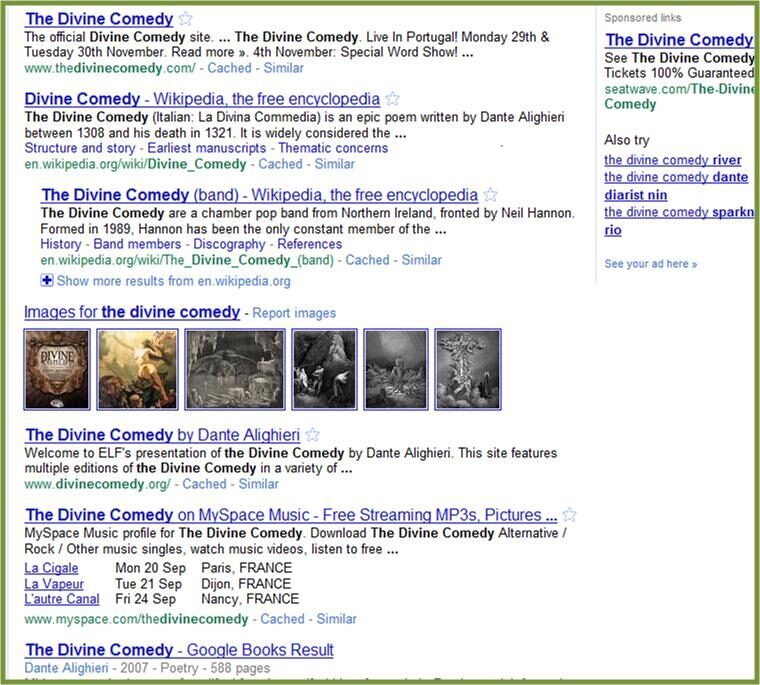In December of 2009 I read an extremely interesting piece on the Telegraph website by Technology and Digital Media Correspondent, Emma Barnett. The piece was a write-up of insights into the future of search, from Google’s Marissa Mayer.
It was the title of the article that hooked me into the piece. Marissa Mayer: An omnivorous Google is coming. As a search engine professional and former Yahoo! I do enjoy the juxtaposition of “Google” with any word that begins “omni” and the Orwellian tint to prophesy that it brings.
Mayers’ insights include multi-lingual query translations on the fly, ring-fenced serving of social data according to user-to-object privacy settings and intuitive search. Barnett states “She [Mayer] wants Google to be capable of presenting information to users before they even know what they’re looking for. Amazingly she doesn’t think her team are that far away from achieving what she calls the ‘omnivorous’ search engine –i.e. one which is able to take a user’s total context – where they are, what they were just reading, which direction their mobile phone is pointed and so on.”
Since then I’ve kept this “omnivorous search” concept in mind, when considering Googles’ product releases, aquisitions and announcements.
Consider the recent shift to display almost a full page of results from one “brand”, which first came to my attention in this piece by Malcolm Coles. Shortly thereafter I read with interest a follow-up from Bill Slawski, who posits that such SERPS may be triggered by an understanding of part of the query as “entity”. Slawski points back to a patent awarded to Google in May 2009 (Query re-writing and entity detection), and expands that an entity may be a person, place or thing.
So what has that got to do with omnivorous consumption of information and intuitive search?
If I’m logged in and using personalised search, allowing Google to collect a great deal of history and session data, wouldn’t that in some part facilitate the compilation of “IPwhatever” and disposition towards an entity? Perhaps I have a history of interaction with the entity “Nine West”, and spend the morning searching for shoes. I may come back from lunch to find a collection of recommended URLs sitting on my Chrome browser background for Nine West slingbacks.
What Part Instant Search?
Aside from session data, query history, location and modes of contact (toolbar, web, mobile); behavioural data must surely inform a huge part of any intuitive search. Personalised search is certainly the first step towards that. Knowing how a user interacts with results; preffered sites (or perhaps even entities) per query go some way to building a picture of propensity to interact (or not). Behavioural feedback in this way is then after-the-fact, whereas with Instant search and the presentation of results mid-query, Google get the ability to understand user-intention at the outset. Which should provide a more accurate picture of personal interests, likes and dislikes.
I’ll give you an example: if pre-Instant Search, I search for “the divine comedy”. I’m presented with the following results, where the first result is the official website of the band, the second the Wikipedia entry for the epic poem by Dante, the third, another Wikipedia entry this time for the band and so on.
With personalised search, Google can record which site I may be most likely to interact with and may favour that site in any future query. Personalised search is therefore after the fact. Certainly, if I find that I’m not keen on this results set, which is composed of two entities (to remain with the vernacular), then I may not interact with these results, but instead choose to append my query with “band” or “dante” in the hope that the next result set will be composed almost exclusively of results for the entity I desired at the outset. I’ve learned that the query “the divine comedy” has dual meaning and disparate results, and that I should append my query. Google has learned that at point of first request, I did not find a result I wanted to interact with, then performed an appended query. I’m taking a shot, however; when I append my query. If I append with “dante”, perhaps that provides the right result, and perhaps “dante” is a known entity, and perhaps if this happens a couple of times and each time I click on the same URL Google may infer that I quite fancy content from that URL. What is difficult to ascertain from the point of user intention is does “IPwhatever” generally favour bands or books? Does personalised search create the sort of footprint that might allow for the understanding of how I interpret the properties of an entity?
I suspect the feedback-after- the-fact in this example, permits only a certain level of inference, with a certain level of confidence.
Google Instant however, surely affords the functionality to encourage a much greater level of refinement mid-query. As I’m watching my SERP change as I’m entering my query, I can choose to refine what I might have originally been about to enter as I seek to refine according to intention. A search involves much less guesswork at the outset. I don’t have to “hit and wait” in order to find out that my query isn’t coming up with the goods.
Of course such query refinement on the fly offers a much greater level of confidence in user intention from the outset, plus the ability to inform a much more detailed and reliable taxonomy of relational terms. As Eric Schmidt said “We can understand things like what you really meant.”
I agree with Barrett in her summation of the Marisa Mayer interview back in December “An omniscient, omnivorous Google is coming and it knows what you want, even if you don’t.” My only caveat to that, is that it’s already here.




